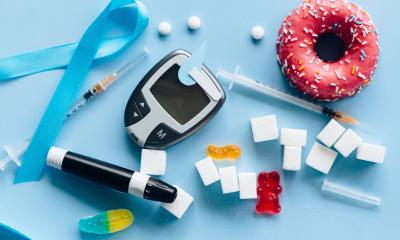Integration to combat diabetes
The German Centre for Diabetes Research joins five highly specialised partners
To face the national and worldwide increase in diabetes mellitus cases, the German Federal Ministry of Education and Research initiated the foundation of the German Centre for Diabetes Research (DZD), aiming to improve basic research, prevention, diagnostic and therapy of diabetes. Inaugurated in Berlin a few months ago, the centre has five strategic partners.


In 2009, the Federal Ministry of Education and Research decided to explore new pathways in health research and planned to establish six new centres of health research to cope with widespread diseases, diseases with a high mortality rate and emerging diseases, such as diabetes. In the same year as the establishment of the Centre for Neurodegenerative Diseases the German Centre for Diabetes Research (DZD) followed, inaugurated on 9 November 2010 by the Parliamentary State Secretary Helge Braun. The remaining four centres that will pool resources and energies the field of infectious, pulmonary and cardiovascular diseases and cancer are scheduled to open in 2011.
The DZD comprises three non-university partners -- the Helmholtz Centre in Munich, German Diabetes Centre in Dusseldorf and the German Institute of Human Nutrition Potsdam-Rehbrücke and the two universities of Tübingen and Dresden. The cooperation of the five -- with registered office in Munich -- is generously supported by the Republic. The Federal Ministry of Education and Research will provide €8 million for the start-up because, from 2015, the Ministry and the Federal States will provide a projected annual funding of €33 million.
A wide range of different aspects in diabetes research will be the focus at DZD. During its inauguration in Berlin, five panel speakers, representing each partner, introduced their specialisations and discussed their potential contribution to DZD.
Professor Hans-Georg Joost, from the German Institute of Human Nutrition in Potsdam-Rehbrücke, emphasised the high quantity of data that his institute brings in - the so-called Potsdamer cohort of around 27,500 people. The German Diabetes (type 2) Risk Score, for example, was compiled via that cohort.
Professor Hans-Ulrich Häring, representing the University in Tübingen, which contributes a well characterised cohort of pre-diabetics, also quoted the Tübingen Lifestyle Intervention Programme (TULIP). This project involves the transfer of cross-sectional data relating to the Tübingen Family Study into a longitudinal study for the prevention of type 2 diabetes mellitus and its vascular complications.
Professor Michael Roden, from the German Diabetes Centre in Dusseldorf, presented the Centre’s study that examines the natural course of the disease in the long run, to identify the factors that induce long-term complications. The study also will be conducted at the other sites, one of the big advantages of a consortium, the Professor emphasised.
The Helmhotz Centre in Munich attaches utmost importance to basic-research, as Professor Martin Hrabé de Angelis explained. He quoted inter alia the characterisation of mouse diabetes models, in collaboration with the German Mouse Clinic in Munich, to understand the molecular mechanisms of the disease better and to develop new therapies.
The Helmholtz Centre also develops a vaccination-strategy for type 1 diabetics in partnership with the University Clinic Carl Gustav Carus of Dresden, the latter being represented by Professor Michele Solimena. Collaborating with both the Helmholtz Centre and the German Diabetes Centre, he and his colleagues examine how to differentiate embryonic stem-cells into insulin-producing cells. The team is also trying to transplant pancreatic islets.
All in all this is a promising scheme. Whether, as the Parliamentary State Secretary Helge Braun hopes, the dream of preventing and curing diabetes will come true in the near future, is more than uncertain. However, the consortium will present its first jointly achieved results in three years.
28.02.2011











